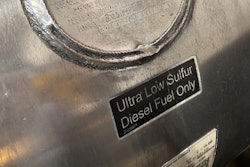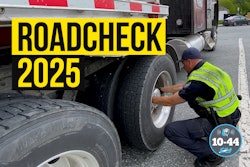Trucking news and briefs for Friday, May 9, 2025:
Labor Department reviewing Biden-era independent contractor rule
The U.S. Department of Labor on May 1 issued guidance to Wage and Hour Division investigators directing them to not apply the Biden-era independent contractor classification rule that was finalized last year while the department reviews the 2024 final rule.
That 2024 rule, which officially took effect on March 11 last year, officially codified, for the first time, the standard that courts have been using for decades up until the Trump Administration’s own independent contractor rule was published in 2021. The Biden DOL repealed the Trump-era rule to put its own rule in place.
[Related: 'Truckers are tired' of regs' shifting sands: DOL rolls back contractor-classification rule]
The rule’s applicability to trucking is limited, as it only applies to classification for purposes of the Fair Labor Standards Act's requirements for employers, which include minimum wage and overtime. Truck drivers, of course, are exempt from receiving overtime pay, and minimum wage disputes in the industry are rare.
Nonetheless, with its newly-published guidance, the DOL said in a number of pending lawsuits challenging the 2024 rule, it “has taken the position in those lawsuits that it is reconsidering the 2024 Rule, including whether to rescind the regulation.”
DOL investigators, instead of applying the 2024 rule’s analysis in current enforcement matters, are directed to rely on a separate fact sheet for determining an employment relationship. The 2024 rule remains in effect for purposes of private litigation, however, DOL noted.
[Related: Defending the American Dream: The impact of new DOL regulations on trucking opportunities]
Bipartisan bill would ease veterans’ transition to trucking
Bipartisan legislation introduced in both chambers of Congress is intended to increase military veterans’ access to trucking apprenticeship programs with their U.S. Department of Veterans Affairs (VA) education benefits.
The bill, if passed, would allow the VA to approve programs operated by commercial trucking companies.
Bill sponsor Sen. Bill Cassidy (R-Louisiana) said the legislation would streamline the VA approval process and cut unnecessary red tape that makes it difficult for veterans to participate in apprenticeships that operate across multiple states. The bill was co-sponsored in the Senate by Sen. Richard Blumenthal (D-Connecticut). Companion legislation was introduced in the U.S. House by Reps. Chris Pappas (D-New Hampshire) and Jennifer Kiggans (R-Virginia).
“Veterans deserve support,” Cassidy said. “Many struggle to find work when they come home. Having a commercial driver’s license opens a lot of doors for them.”
According to a press release from Cassidy’s office, trucking companies currently operating in more than one state must get approval from each state to allow veterans to use their VA education benefits for apprenticeship programs with their company. In some cases, these companies have opted out of offering apprenticeships for veterans due to the burdensome red tape required to get more than 20 different approvals.
This bill would allow interstate commercial carriers to get one approval for their apprenticeship programs from the VA, making it easier for veterans to access trucking apprenticeship programs.
Arizona adds public truck parking info online
The Arizona Department of Transportation announced this week it is providing truckers with online real-time information on how many parking spaces are available at Interstate 10 rest areas in western and southeastern Arizona.
The parking information is now available on the Arizona Traveler Information website, az511.gov. It’s part of the Truck Parking Availability System that launched in January with electronic signs alerting truckers to rest area parking spaces ahead. The goal, ADOT said, is helping truckers get the rest they need without having to use places that aren’t designated for truck parking.
The parking information is available through a $2.8 million system that serves the eastbound and westbound Ehrenberg and Bouse Wash rest areas between the Valley and California, and at the Texas Canyon and San Simon rest areas on both directions of I-10 in southeastern Arizona.
Those rest areas feature monitoring systems that track available parking, then that information is supplied to electronic signs, az511.gov and third-party sources used by truck drivers.











